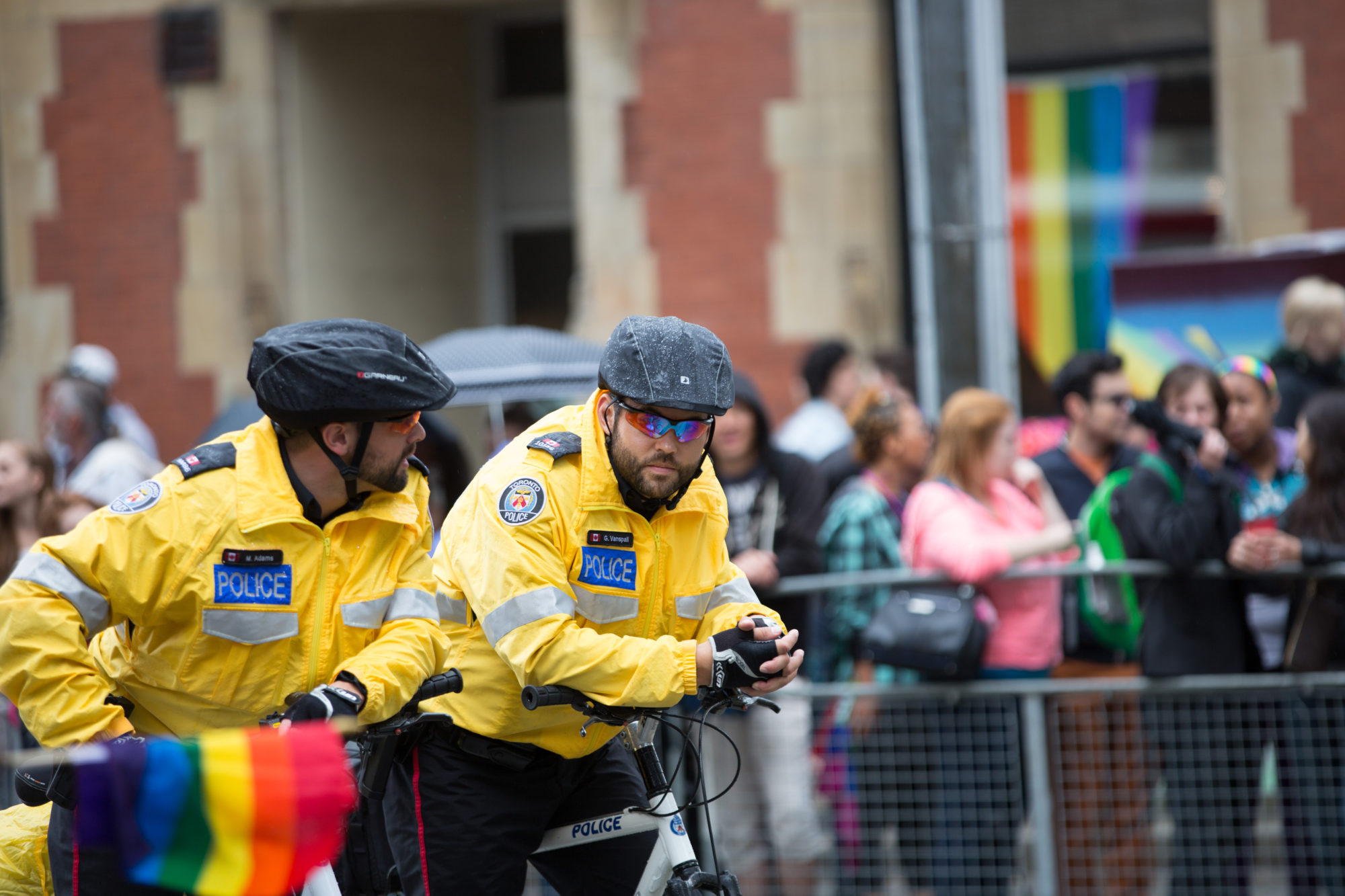Toronto’s gay village will be getting four dedicated police officers in an attempt to improve relations between residents and the police.
The four officers, which will be shared between Church-Wellesley Village, St James Town and the surrounding areas, will be tasked with “community-based policing,” which has elicited both praise and criticism.
Kristyn Wong-Tam, the city councillor for the area, says that she has been trying to convince Toronto police for years about the need to have officers who know the community and are culturally competent around LGBT issues.
“When officers parachute into the neighbourhood, they have no sensibilities of who we are,” she says. “So this is a significant step forward, having officers that are either LGBT-identified or at least very sensitive and aware.”
Wong-Tam hopes that these officers will help establish better links to the community.
“I think every single neighbourhood would want what we are getting,” she says.
At community meetings throughout the past year, many Church-Wellesley residents have complained about feeling less safe and being subject to robberies, homophobic or transphobic comments and even assaults.
But Queers Crash the Beat, an activist group formed in opposition to Project Marie, says that an increased police presence won’t actually be helpful to many community members. Instead, they want to see that money redirected towards mental health supports.
“We would caution those residents from thinking that the further involvement of police in our communities is something that’s going to be of benefit to us,” says Paul Sutton, a spokesperson for Queers Crash the Beat.
He says that the rapid gentrification of Church-Wellesley has led to an influx of new residents who may have a lack of understanding of the neighbourhood’s more vulnerable residents, and are likely to turn to the police.
“The solution is not to criminalize people, the solution is to provide additional support and additional resources and additional referrals to health care and to community mental health support services for people who are in distress,” he says.
Wong-Tam says she agrees with many of those concerns.
“This is not going to solve everything; we will still need to invest in affordable housing, we will still need to make sure that people have good, well-paying jobs, we will still make sure that mental health supports are available for people when they need them,” she says. “We need all those things and we need the dedicated officers.”
And she says that the four police officers won’t actually cost more money; the officers are simply being redeployed.
But Sutton says that after the year Toronto police have had, especially in light of Project Marie and the continued over-policing of racialized communities, many residents have good reason to distrust a more entrenched police presence.
“The solution here to be prioritized is not one that’s going to see more police on the streets,” he says. “The thing that needs to be prioritized here is the expansion of services that are actually going to help people who are in need.”

 Why you can trust Xtra
Why you can trust Xtra


